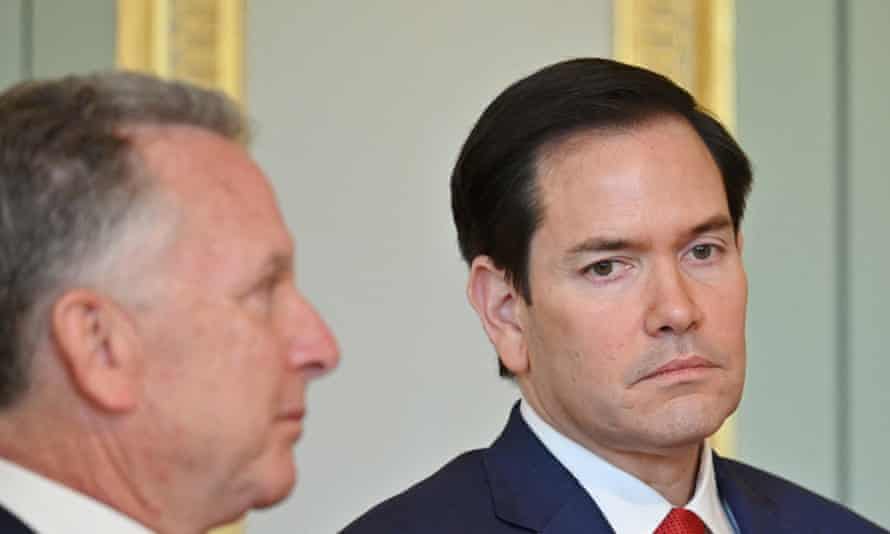The United States is preparing to walk away from its diplomatic efforts to broker a peace agreement between Russia and Ukraine unless signs of meaningful progress emerge “within days,” U.S. Secretary of State Marco Rubio warned on Friday.
Speaking at a press conference in Paris following a round of talks with European and Ukrainian leaders, Rubio delivered the Biden administration’s starkest warning yet: “It is not our war. We didn’t start it,” he said. Rubio indicated that President Donald Trump, while still open to a deal, is increasingly willing to “move on” from negotiations if both parties remain deadlocked.
“If a deal isn’t possible, the president is probably at a point where he’s going to say, well, we’re done,” Rubio said. “He feels very strongly about this.”
The remarks come as Kyiv announced it had signed a memorandum with the U.S. regarding a controversial minerals deal, raising questions about Ukraine’s post-war reconstruction and economic sovereignty. Key details of the deal remain under wraps, including whether Ukraine has agreed to a U.S. demand to “repay” past military assistance.
Tensions escalated further this week as Russia intensified its military offensive across the 1,000-kilometer frontline, launching deadly airstrikes on Ukrainian cities. A recent bombing of Sumy claimed 35 lives and injured over 100 civilians, underscoring the war’s continued brutality.
In this atmosphere, the latest U.S. peace proposal presented to European allies on Thursday suggests freezing the conflict along current battle lines. The draft, seen by The Guardian, would allow Russia to retain its occupied territories and bar Ukraine from NATO membership, in exchange for a ceasefire and limited security guarantees.
However, Kremlin spokesman Dmitry Peskov dismissed the proposal, stating the war’s resolution must “ensure Russia’s interests.”
Since President Trump’s return to the White House in January, U.S. military aid to Ukraine has largely stalled. Intelligence sharing has also been reduced. Trump, echoing Kremlin narratives, blamed both President Volodymyr Zelenskyy and former President Joe Biden for “starting” the war, without providing evidence.
While Trump has shown little appetite for sanctioning Moscow, his administration has quietly engaged Russian officials. Special envoy Steve Witkoff met with President Vladimir Putin last week in St. Petersburg, signaling a controversial shift in U.S. diplomacy.
Meanwhile, Zelenskyy has confirmed that American arms deliveries have “practically stopped,” raising alarm in Kyiv.
Parallel to peace negotiations, Ukraine’s economic future is taking shape. On Friday, First Deputy Prime Minister Yuliia Svyrydenko announced the signing of a memorandum with the U.S. that lays the groundwork for a joint investment fund to support Ukraine’s reconstruction.
“We are happy to announce the signing with our American partners,” she said.
The 80-page draft agreement, still under revision, acknowledges the “significant material and financial support” Ukraine has received from the U.S. since Russia’s 2022 invasion. It calls for the creation of a “reconstruction investment fund,” with final technical talks set for next week in Washington.
However, a major point of contention remains unresolved. President Trump insists that Ukraine repay the estimated $300 billion in aid previously provided by the Biden administration — a stance rejected by Zelenskyy, who notes the support was granted, not loaned.
Ukraine’s Prime Minister Denys Shmyhal is expected in Washington next week for final negotiations, with ratification by Ukraine’s parliament still required.
U.S. Vice President JD Vance struck a more hopeful tone in Rome, telling reporters after a meeting with Italian Prime Minister Giorgia Meloni that he was “optimistic” about ending “this very brutal war.”
“Even in the past 24 hours, we think we have some interesting things to report on,” Vance said, without elaborating.
Yet, without consensus on territorial control, NATO ambitions, or the future of U.S. support, peace in Ukraine remains elusive and the window for diplomacy may be closing fast.
As Zelenskyy attempts to navigate fraught relationships with the Trump administration, the fate of Ukraine hangs in the balance.



